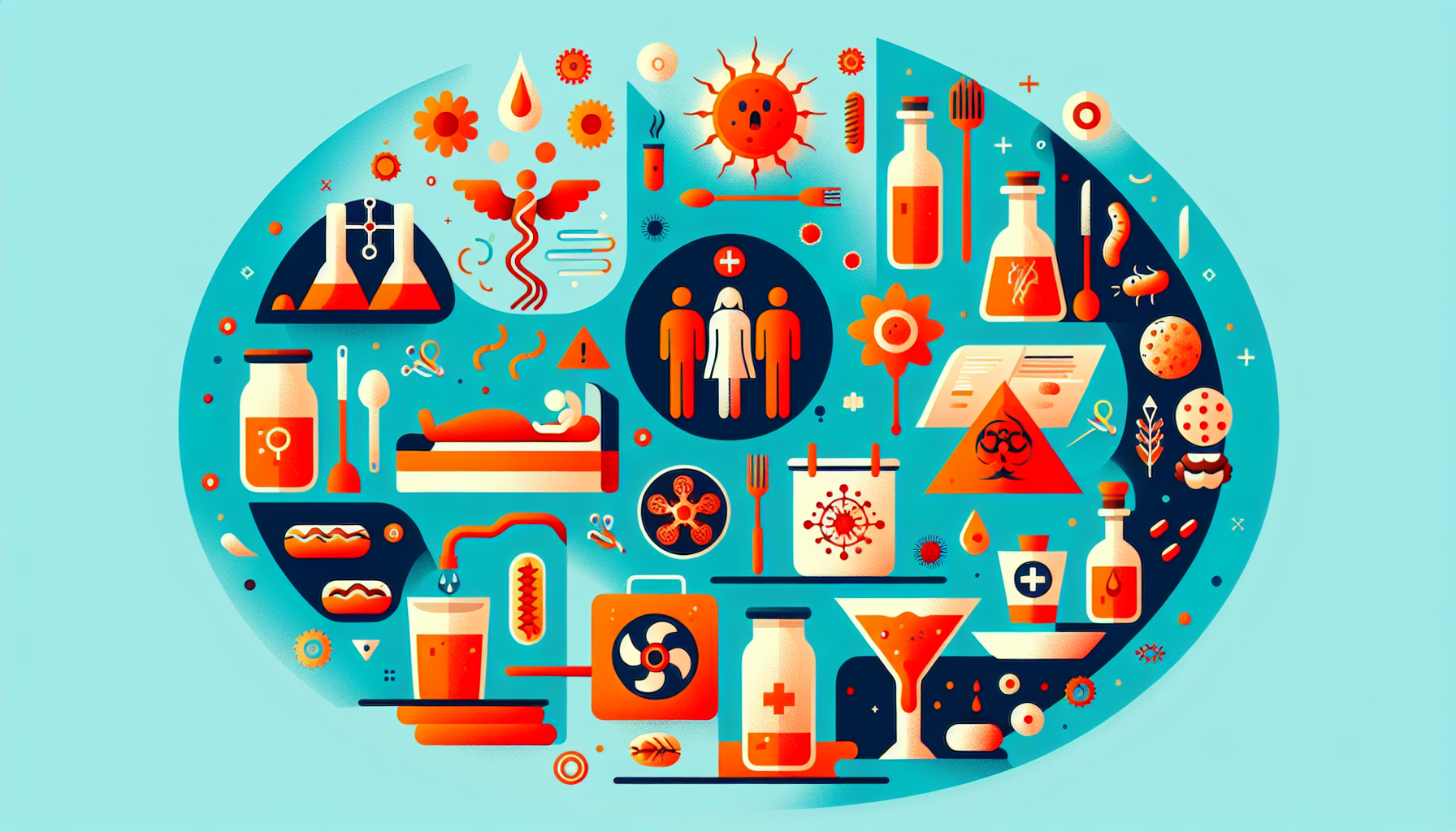Food poisoning is a common issue that affects millions of people each year. It occurs when you consume food or drink that is contaminated with harmful bacteria, viruses, or parasites. In this easy-to-understand guide, we'll cover the symptoms, causes, treatment, and prevention of food poisoning.
Symptoms of Food Poisoning
The main symptoms of food poisoning include:
These symptoms usually appear a few hours or days after consuming contaminated food or drink. Most cases of food poisoning resolve on their own within a few days. However, if your symptoms are severe or persist, it's essential to see a doctor.
Causes of Food Poisoning
Food poisoning can be caused by over 250 different bacteria, viruses, and parasites. Some of the most common culprits include:
Norovirus
Salmonella
Clostridium perfringens
Campylobacter
E. coli
Listeria
These harmful organisms can contaminate food at any stage, from growing and packaging to shipping, storing, and cooking. Foods that are more likely to cause food poisoning include raw eggs, unpasteurized milk and juice, soft cheeses, raw or undercooked meat or seafood, and fresh produce.
Treatment for Food Poisoning
Most cases of food poisoning can be treated at home by:
Staying hydrated with clear fluids
Gradually reintroducing bland foods like saltine crackers, bananas, rice, or bread
Avoiding fried, greasy, spicy, or sweet foods
Resting and allowing your body to recover
In severe cases, hospitalization may be necessary to treat dehydration or other complications. If you experience severe symptoms like bloody diarrhea, high fever, or signs of dehydration, seek medical attention immediately.
Preventing Food Poisoning
The best way to prevent food poisoning is by practicing good food safety habits, such as:
Washing your hands thoroughly before handling food
Keeping raw foods separate from cooked foods
Cooking foods to safe temperatures
Storing foods properly in the refrigerator or freezer
Avoiding high-risk foods if you're in a vulnerable group (e.g., pregnant women, young children, elderly, or immunocompromised)
When dining out or traveling, be mindful of the food you consume and the hygiene practices of the establishments you visit. By taking these precautions, you can significantly reduce your risk of contracting food poisoning.
For more information on food safety and preventing foodborne illnesses, visit the following reputable sources:
Remember, if you suspect you have food poisoning and your symptoms are severe or persistent, don't hesitate to seek medical attention. Your health and well-being should always be your top priority.
The Bottom Line
Most cases resolve within 3-7 days with rest and fluid replacement, but severe symptoms like bloody diarrhea, high fever above 102°F, or signs of dehydration require immediate medical attention. Focus prevention efforts on proper food temperatures and hand hygiene, which prevent 85% of foodborne illnesses. If you're experiencing concerning symptoms or have questions about treatment, Doctronic can provide quick guidance on when to seek care.


